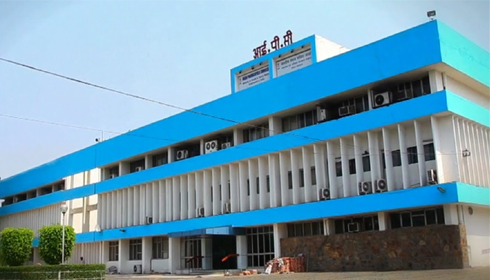
Indian Pharmacopoeia Commission joins as a member of the pharmacopoeial discussion group
The Indian Pharmacopoeia Commission has now become a member of the Pharmacopoeial Discussion Group (PDG) recently, during the PDG Stakeholders Meeting in Hyderabad.
The Union Health Ministry stated that IPC officially joined as a member of the PDG at the PDG’s annual meeting, which was held on October 3–4, 2023, in Hyderabad.
It may be noted that the World Health Organisation also continues to serve as an observer of the PDG.
The ministry said that the PDG will now bring together the European Pharmacopoeia (Ph. Eur.), the Japanese Pharmacopoeia (JP), the United States Pharmacopoeia (USP), and the Indian Pharmacopoeia (IP) to harmonise global pharmacopoeial standards. The objective is to reduce manufacturers' burden of having to perform analytical procedures in different ways, using different acceptance criteria, in order to satisfy pharmacopoeial requirements that vary across regions.
The health ministry added that PDG has defined harmonisation of a pharmacopoeial monograph or general chapter as follows:
“A pharmacopoeia general chapter or other pharmacopoeial document is harmonised when a pharmaceutical substance or product tested by the document's harmonised procedure yields the same results and the same accept/reject decision is reached.”
IPC was the only Pharmacopoeia body in the world to be selected for the pilot phase, which was initiated in September 2022. After reviewing each application, the PDG agreed by consensus to start the pilot phase with the IPC, the only applicant that met all the requirements in the entry criteria for the pilot. This represented IPC’s continued commitment and capability to develop world-class quality standards for drugs and pharmaceuticals.
After 1 year of the pilot phase, based on IPC’s involvement, contribution, and future potential, the decision on inclusion as a permanent member of PDG was taken. An official letter was sent to IPC by the PDG on September 18, 2023, regarding confirmation of IPC's membership in the PDG.
Inclusion of IP in PDG will significantly increase the visibility of the Indian Pharmacopoia on an international platform. It will establish IP as a progressive pharmacopoeia that designs drug quality standards on par with global standards. Application of these standards will lead to the production of world-class pharmaceutical products for domestic and export markets.
It will help IPC collaborate and harmonise pharmacopoeial standards with other major regulatory and standard-setting authorities, which in turn will help in ensuring the quality and safety of pharmaceuticals at a global level.
International Recognition: Membership in the PDG would enhance the international recognition of the standards set by the IPC. This also has the potential to improve the acceptance of Indian pharmaceutical products in global markets, as they adhere to internationally recognised quality standards.
Improved Regulatory Compliance: IPC will benefit from the exchange of information and best practices with other PDG members. This collaboration will help India align its regulatory processes and practices with global standards, making it easier for Indian pharmaceutical companies to comply with international regulations.
Access to Global Markets: Membership in the PDG will facilitate enhanced exports of Indian pharmaceutical products to other member countries. Aligning with international standards will reduce trade barriers and make it easier for Indian pharmaceutical companies to access global markets.
Global Health Impact: The harmonisation of pharmacopoeial standards among PDG members will contribute to the global effort to ensure the safety and efficacy of marketed pharmaceutical products. This will have a direct impact on public health worldwide, as it helps to prevent the circulation of substandard or counterfeit drugs.
IPC’s membership in the PDG is one step forward towards promoting harmonisation of pharmaceutical standards, improving regulatory compliance, facilitating international recognition, and ultimately contributing to global public health through the assurance of drug quality and safety.